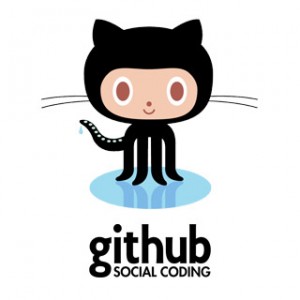Yn yr Eisteddfodau a digwyddiadau Hacio’r Iaith diweddar, rydym wedi arddangos ein breichiau robot sy’n glwm i Raspberry Pis ac sy’n yn ymateb i gyfarwyddyd yn y Gymraeg.
Dyma fideo o dair braich gyda’i gilydd :
Mae’n system adnabod lleferydd syml iawn a nawr, i’r rhai sy’n teimlo’n anturus, dyma gyfarwyddiadau ar sut y gallwch chithau gosod y demo ar eich Raspberry Pi chi.
Byddwch angen yr offer canlynol:
Os rydych yn defnyddio Raspberry Pi hŷn, gyda ddim ond dau borth USB, yna rydych angen hwb USB, fel http://www.modmypi.com/raspberry-pi/accessories/usb-hubs/pihub-official-4-port-raspberry-pi-usb-hub-eu-plug-5v-3a, er mwyn cysylltu popeth.
Mae’r demo yn defnyddio peiriant adnabod lleferydd cod agored o’r enw ‘Julius’. Mae hefyd yn defnyddio modelau acwstig rydym wedi eu cynhyrchu gyda recordiadau 20 unigolyn yn llefaru promtiau arbennig.
Teipiwch y canlynol o linell gorchymyn ar eich Raspberry Pi er mwyn gosod y system ‘Julius’:
$ sudo apt-get update
$ sudo apt-get install alsa-tools alsa-oss flex zlib1g-dev libc-bin libc-dev-bin python-pexpect libasound2 libasound2-dev cvs
$ cvs -z3 -d:pserver:anonymous@cvs.sourceforge.jp:/cvsroot/julius co julius4
$ export CFLAGS="-O2 -mcpu=arm1176jzf-s -mfpu=vfp -mfloat-abi=hard -pipe -fomit-frame-pointer"
$ ./configure --with-mictype=alsa
$ sudo make
$ sudo make install
$ export ALSADEV="plughw:1,0"
$ julius
Os yw’r llinell olaf yn achosi i’r canlynol ymddangos, yna rydych wedi gosod Julius yn llwyddiannus!
Julius rev.4.3.1 - based on
JuliusLib rev.4.3.1 (fast) built for x86_64-unknown-linux-gnu
Copyright (c) 1991-2013 Kawahara Lab., Kyoto University
Copyright (c) 1997-2000 Information-technology Promotion Agency, Japan
Copyright (c) 2000-2005 Shikano Lab., Nara Institute of Science and Technology
Copyright (c) 2005-2013 Julius project team, Nagoya Institute of Technology
Try '-setting' for built-in engine configuration.
Try '-help' for run time options.
Yn nesaf, rhaid i chi lwytho i lawr ein ffeiliau adnabod lleferydd braich robot o’r Porth Technolegau Iaith ar gyfer eu defnyddio gyda Julius.
$ mkdir robot
$ cd robot
$ wget http://techiaith.cymru/gallu/braichrobot.tar.gz
$ tar -zxvf braichrobot.tar.gz
Ac yna er mwyn cael y Raspberry Pi a’r fraich robot i ymateb i’r gorchmynion ar lafar, teipiwch:
$ cd braichrobot
$ sudo python robotarm_voicectl.py
Dylai’r gair ‘siaradwch’ ymddangos. Dyma beth fyddwch nawr yn gallu dweud wrth y fraich:
ysgwydd i fyny
ysgwydd i lawr
penelin i fyny
penelin i lawr
arddwrn i fyny
arddwrn i lawr
gafael agor
gafael cau
troi i’r chwith
troi i’r dde
golau ymlaen
Gobeithio bydd y project bach yma yn hwyl yn enwedig i ddisgyblion Ysgol Pont y Gof, Botwnnog a enillodd un o’n breichiau robot mewn cystadleuaeth codio yng Ngholeg Meirion Dwyfor ym Mhwllheli yn ystod yr haf:
Yn y cyfamser, diolch i nawdd gan Lywodraeth Cymru ac S4C, rydym yn parhau i ddatblygu adnabod lleferydd Cymraeg ac i’w chynnig yn rhad ac am ddim o fewn y Porth Technolegau Iaith. Ein bwriad yw datblygu systemau mwy soffistigedig a mwy defnyddiol.
Ond mae angen eich help! Cyfrannwch eich llais drwy ein ap Paldaruo:

iTunes Google Play






